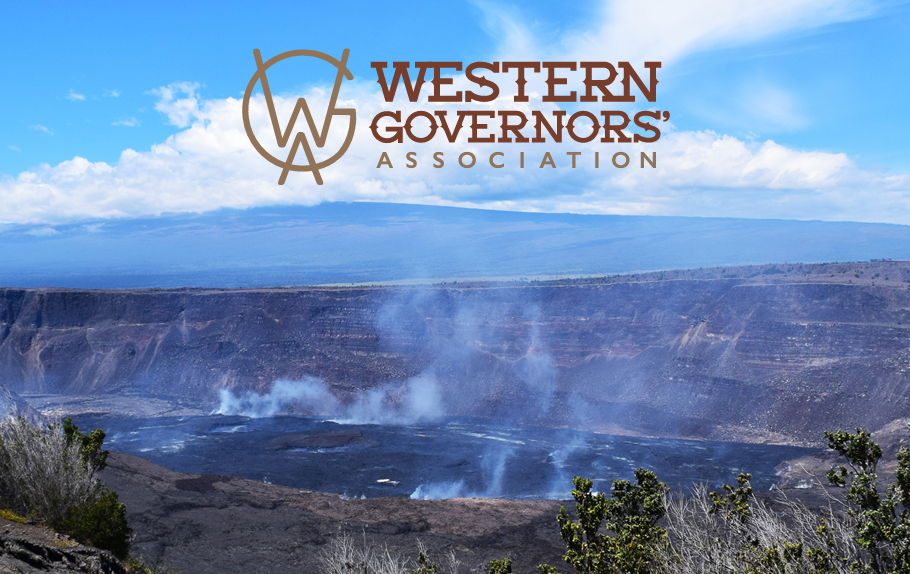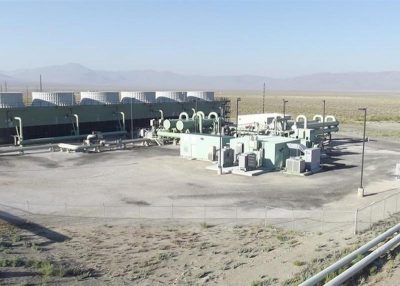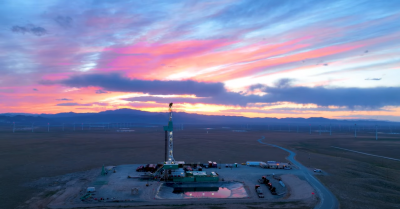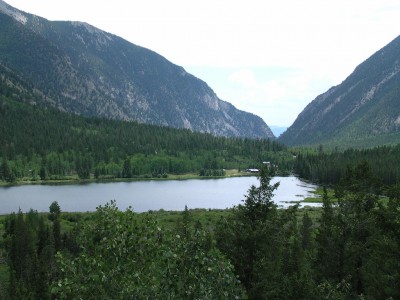Heat Beneath Our Feet publishes recommendations to accelerate geothermal deployment
The Western Governors' Association has published recommendations to accelerate deployment of geothermal technologies in the Western U.S.
As part of the bipartisan Heat Beneath Our Feet initiative, the Western Governors’ Association (WGA) has published a comprehensive report detailing the group’s recommendations and strategies to accelerate the deployment of geothermal technologies across the Western U.S. states. The full report can be viewed here.
The Heat Beneath Our Feet initiative was launched by the WGA under the leadership of Governor Jared Polis of Colorado in mid-2022. The goal was for the WGA to evaluate geothermal energy technology development in the Western States and assess the potential benefits it would offer. This was followed by a rigorous process of engaging with over 500 stakeholders through online surveys, tours, work sessions, and a webinar series.
The report also highlights several case studies of geothermal development in various U.S. states, as well as recaps of the many tours and workshops conducted as part of the Heat Beneath Our Feet Initiative.
After examining the various market, technology, and policy factors that affect the development of geothermal resources, the report proposed the following recommendations:
Improve resource assessment and data collection
- Increase federal funding for resource assessments – “Congress should provide USGS and DOE with funding to increase the pace and scale of data collection, mapping and resource assessments and facilitate collaboration with state geological surveys. DOE should also leverage synergies with other programs, such as USGS’s Earth Mapping Resources Initiative (MRI) that are complementary efforts and in which states are already partners, to expedite efforts to assess geothermal resources. “
- Coordinate with states to target resource areas with greatest potential – “States serve a critical function as primary sources and stewards of geospatial, scientific, and technical datasets that support the development of renewable energy resources. State geological surveys should have the opportunity to provide input and recommendations on where USGS and GTO prioritize resource assessment efforts in their states. “
- Improve the federal repository of relevant geothermal development data and the ability to interact with it – “The federal geothermal data repository should seek to incorporate data relevant to those factors, such as mapping overlays of critical habitat for endangered species, hydrological data, and existing transmission capacity… This federal repository could build on NREL’s Geothermal Prospector and should be publicly available and easily accessible online.”
- Leverage data from the oil and gas industry – “Both (oil and gas, and mining) industries rely heavily on subsurface expertise that could help reduce the exploration and drilling costs of the geothermal industry. These operators should be encouraged to share data from existing operations with geothermal developers. Further, public-private partnerships with DOE should be encouraged to reduce the cost of drilling for geothermal wells through project demonstration grants.”
Mitigate risk in drilling and exploration
- Continue federal investment in reducing uncertainty in geothermal exploration – ” Congress should extend authorization and increase funding for the Hidden Systems Initiative… for the research and development of innovative subsurface technologies.”
- Explore models to help developers secure financing for exploratory drilling – “DOE should explore the feasibility of cost share programs, such as guaranteed loans, insurance, and grants, and assess the effect these mechanisms would have on the geothermal industry.”
- Extend existing tax incentives for the oil and gas industries to geothermal development – “Despite the similarity of exploration activities in the geothermal and oil and gas industry, some regulatory and tax incentives that currently apply to exploratory wells drilled for oil and gas do not apply to geothermal exploration. Congress should extend this tax treatment to the geothermal industry.”
Optimize permitting and improve regulatory certainty
- Provide tools and resources to help proponents navigate the geothermal development process. – “DOE should coordinate with states to maintain publicly available resources detailing the state and federal requirements that apply to geothermal development in each state.”
- Increase agency capacity for leasing and permitting. – “The Department of the Interior (DOI), USFS, and Congress should ensure that the relevant agencies are adequately staffed to review permits in a timely fashion. DOI and USFS should also ensure agency staff have access to technical experts to build staff expertise in geothermal development.”
- Develop streamlined processes for geothermal leasing on par with other energy categories. – “BLM should establish priority leasing areas for geothermal energy, as it has done for wind and solar energy in Instruction Memorandum No. 2022-027.”
- Expand oil and gas exploration regulatory efficiencies to geothermal development. – “Congress should expand Section 390 (of The Energy Policy Act of 2005) to include geothermal exploration, which would allow agencies to use the existing categorical exclusion to facilitate increased geothermal exploration and the discovery of new resources without compromising environmental protections.”
- Fund research on the water usage of EGS. – “DOE should fund water efficiency research as part of the Enhanced Geothermal Shot and related EGS efforts.”
- Collaborate with tribes and communities, including consultation prior to and during project development. – “Where relevant, it is important to consult tribes at the beginning of a potential geothermal project and ensure that the resource is developed in a way that does not damage sensitive historical and cultural resources.”
Expand funding opportunities
- Expand funding for demonstration projects. – “Congress should expand funding for programs that support geothermal demonstration projects such as those under the DOE Loan Program Office’s Title 17 Clean Energy Financing program… Congress should continue to fund the FORGE project and establish additional EGS demonstration projects in the West.”
- Encourage development in energy transition communities. – “DOE should target funding towards these (energy) communities for the conversion of existing oil and gas wells to geothermal energy as part of a just transition.”
- Increase funding levels for the Geothermal Technologies Office. – “Congress should appropriate sufficient funds to the GTO to establish a strong research and development capability and to execute the recommendations contained in this report… Appropriations in recent years have been significantly below the authorized level.”
Implement incentives for consumer adoption:
- Expedite the deployment of tax incentives, rebates, and end-user applications. – “The Inflation Reduction Act both increased and expanded the tax credits and rebate program for the installation of geothermal heating systems. The Internal Revenue Service should move quickly to implement these programs so that consumers can begin taking advantage of them as soon as possible and define domestic content requirements in as expansive a manner as permissible under federal law.”
Develop workforce and contractor ecosystem
- Create opportunities for workers and communities affected by the energy transition – “Congress should establish a mechanism within DOE that leverages existing expertise and relationships in the national labs to conduct education and workforce development. Congress and DOE, in conjunction with other federal agencies, should also consider opportunities to target these communities with resources and training, and collaborate with relevant trade unions to expedite its deployment in communities.”
- Support workforce development in the geothermal industry. – “Policymakers should support the development of industrywide training opportunities and collaborate when applicable with trade unions that perform this work. The industry should work closely with states to develop and scale up training pathways to meet this workforce demand.”
Increase awareness and education to develop geothermal markets
- Develop guidance for policymakers, regulators, and utilities to conduct cost-benefit analyses of geothermal energy – ” Greater awareness of the firm, clean nature of geothermal energy could build more confidence in the resource and lead to utilities encouraging geothermal solicitations in their bids. DOE should develop guidance on how to incorporate the full value of geothermal projects into resource planning.”
Source: WGA


















